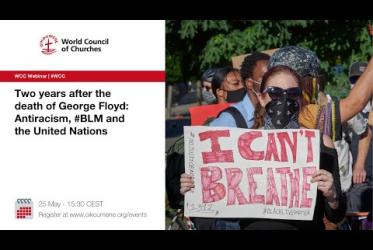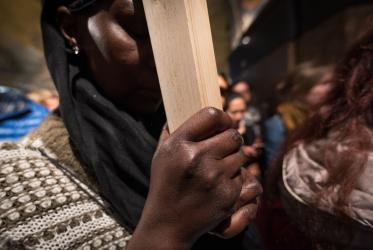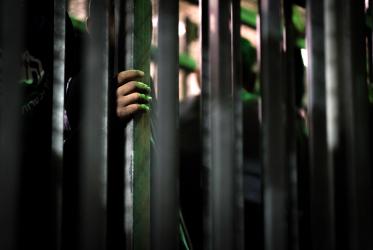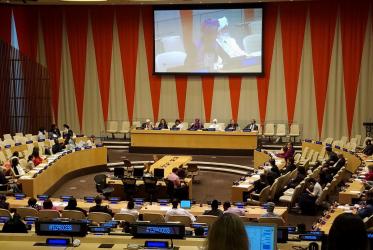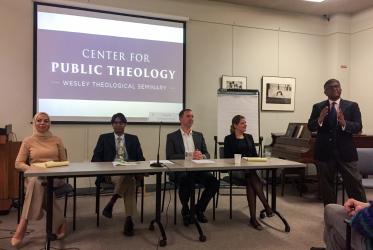Displaying 1 - 20 of 21
How do churches address racism, really?
15 February 2022
WCC condemns attack at Hanukkah celebration in New York City
29 December 2019
Religion: Way of war or path to peace?
30 June 2016
Symposium focuses on religion, violence, extremism
04 February 2016
At UN, anti-nuclear majorities challenge nuclear-dependent minority
05 November 2015
